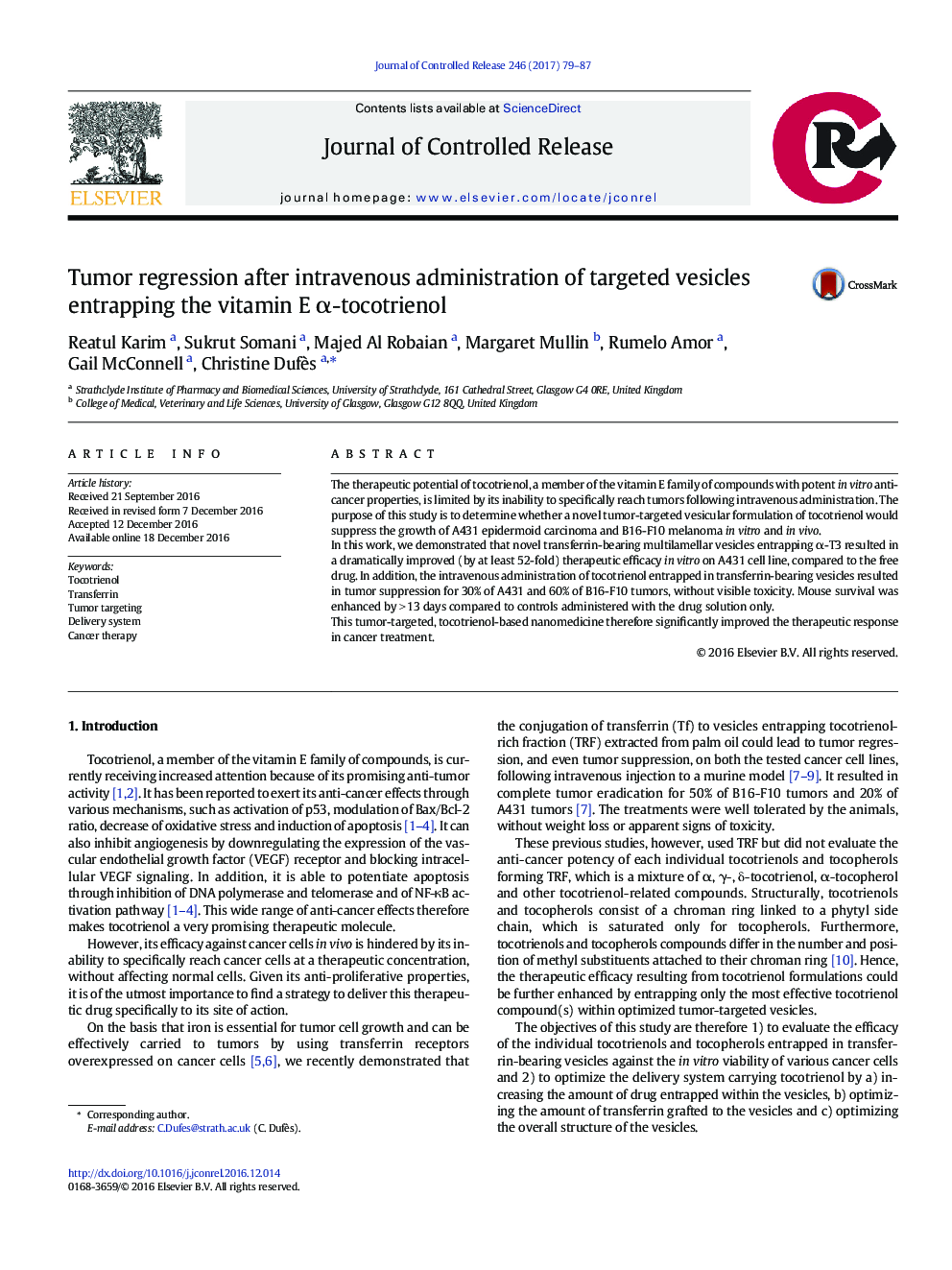| Article ID | Journal | Published Year | Pages | File Type |
|---|---|---|---|---|
| 5434016 | Journal of Controlled Release | 2017 | 9 Pages |
The therapeutic potential of tocotrienol, a member of the vitamin E family of compounds with potent in vitro anti-cancer properties, is limited by its inability to specifically reach tumors following intravenous administration. The purpose of this study is to determine whether a novel tumor-targeted vesicular formulation of tocotrienol would suppress the growth of A431 epidermoid carcinoma and B16-F10 melanoma in vitro and in vivo.In this work, we demonstrated that novel transferrin-bearing multilamellar vesicles entrapping α-T3 resulted in a dramatically improved (by at least 52-fold) therapeutic efficacy in vitro on A431 cell line, compared to the free drug. In addition, the intravenous administration of tocotrienol entrapped in transferrin-bearing vesicles resulted in tumor suppression for 30% of A431 and 60% of B16-F10 tumors, without visible toxicity. Mouse survival was enhanced by > 13 days compared to controls administered with the drug solution only.This tumor-targeted, tocotrienol-based nanomedicine therefore significantly improved the therapeutic response in cancer treatment.
Graphical abstractTumor growth studies in a mouse A431 xenograft model after intravenous administration of transferrin-bearing vesicles encapsulating α-T3 (10 μg/injection) (green) (controls: control vesicles entrapping α-T3 (orange), α-T3 solution (red), untreated tumors (black)) (n = 10).Download high-res image (268KB)Download full-size image
